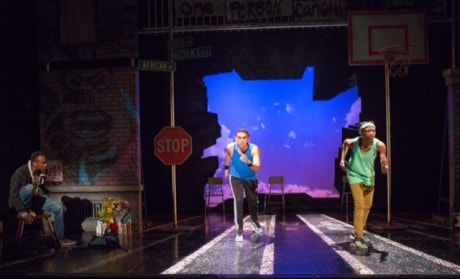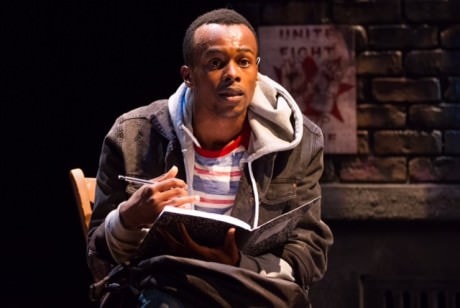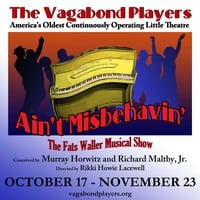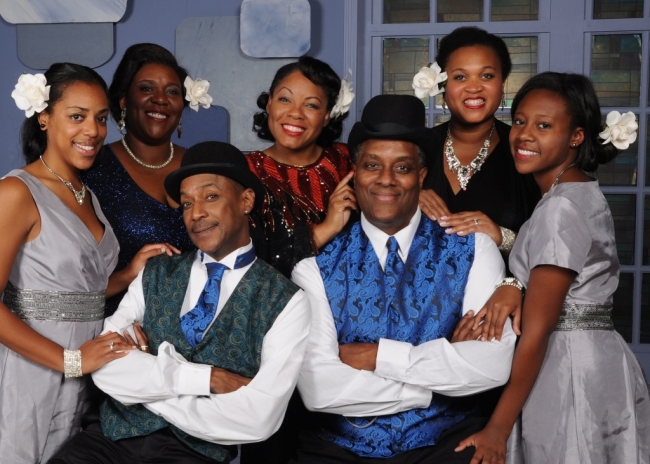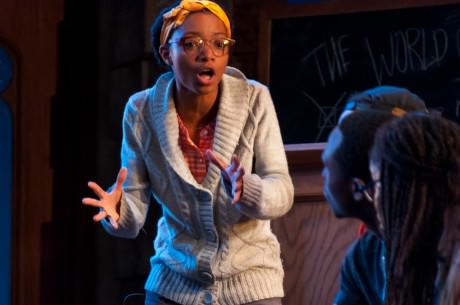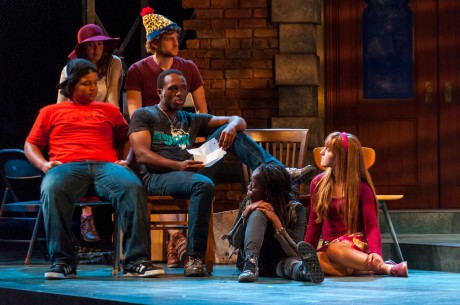The weather, like the five characters in Cori Thomas’ tender romantic comedy When January Feels Like Summer, is in crisis. Attribute the unpredictable climate to global warming, but it’s nothing a little love of mother earth and love of fellow man can’t fix. Thomas’ play is a slice of New York City life, about a group of broken individuals in Harlem whose lives intersect in an unanticipated, seemingly random way. Through these connections, Thomas shows us in her characters- a New York City sanitation worker, the wife of a bodega owner and her transgender brother, and two young fast food workers- that everyone, no matter how damaged, or how seemingly insignificant, is worthy of love.
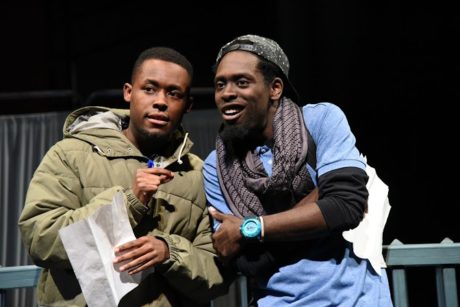
It’s a story we’ve been told countless times and it would all be rather unremarkable were it not for Thomas’ uncanny ear for language and her ability to create characters who are wholly unique individuals, as well as director Serge Seiden and his spectacular cast who bring these people leaping off of the page with a sensitivity, warmth and humor that left me smiling as I left the theatre, and comforted with the reminder, which perhaps we all need nowadays, that there is indeed goodness in the world.
Off of the 157th Street subway stop on the 1 line in Harlem, Nirmala begrudgingly (Lynette Rathnam) runs the bodega owned by her abusive husband, who lies brain dead in a hospital bed. Her brother Ishan (Shravan Amin) confides in her that he is transgender and wants Nirmala to discontinue life support in order to collect a one-million dollar life insurance policy that will, in part, pay for his gender reassignment surgery.

In another corner of the neighborhood, two young men (a remarkable Jeremy Keith Hunter and Vaughn Ryan Midder), boys really, dream of something larger than their Burger King jobs. When Devaun (Hunter) ends up on the receiving end of an unwanted touching and he and Jeron (Midder) decide to warn the neighborhood of a predator on the loose through a poster campaign, the lives of the two become intertwined with Nirmala, Ishan (now Indira) and the neighborhood garbage man, Joe (Jason B. McIntosh), in the most unassuming but profoundly honest way. And it is the honesty of text and performance that makes When January Feels Like Summer rise from the ordinary to the extraordinary.
I am hard pressed to recall a more uniformly excellent acting ensemble than the one Seiden has assembled here. As the sad and lonely anonymous strangers who meet cute in the big city, Rathnam and Macintosh bring a quiet and lovely vulnerability to their roles that blossoms beautifully towards the end of the play when, like giddy teenagers, they share a banana split. Amin brings dignity to the role of Ishan/Indira a stranger to his own body who slowly discovers the world with fresh eyes and learns, finally, to receive and enjoy the love and beauty that is in abundance around him. Hunter shines as Devaun, the young man with more value than even he knows he has. He disappears so totally and completely in to the character, it is as if Thomas wrote the role specifically for him. It is a magnificent performance. As his sidekick, and the smarter of the two, Midder is a game straight man.
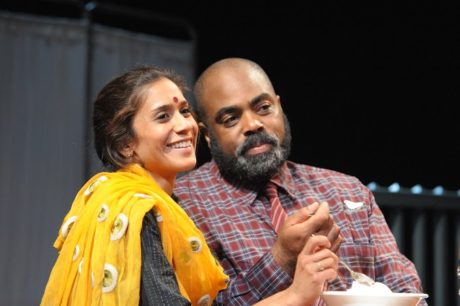
Although not explicit, there is a sense of the magical that hovers over Seiden’s production and gives it a bit of a fairy tale quality. Perhaps it comes from the presence of the god Ganesha, the Hindu deity recognized by his elephant head, a statue of whom presides over the proceedings. The production looks pristine, more like an imagined New York City, than the one I lived in for over a decade (the set is by Debra Booth, lighting by Max Doolittle, and costumes by Robert Croghan).
Ganesha is known as the remover of obstacles and the god of beginnings, and as I watched When January Feels Like Summer, I was reminded of a quote I heard when I was living not far from where the play takes place. “It will all work out in the end. If it hasn’t worked out, it isn’t the end.” For the characters in When January Feels Like Summer, for the bodega owners, and garbage men, and fry cooks, and millions of others whose stories we don’t know but who make up the fabric, no, mosaic, if you will, of New York City, this quote is more than mere words. In this cruelest of cities, it is a mantra, a hope and belief that we all deserve and will find grace and love.
Running Time: Two hours 15 minutes, with one intermission.

When January Feels Like Summer plays through June 12, 2016, at Mosaic Theater Company of DC performing in the Lang Theatre at Atlas Performing Arts Center – 1333 H Street NE, in Washington, D.C. For tickets, call the box office at (202) 399-7993 ext. 2, or purchase them online.
LINK:
Magic Time! ‘When January Feels Like Summer’ at Mosaic Theater Company of DC by John Stoltenberg.
RATING: ![]()



